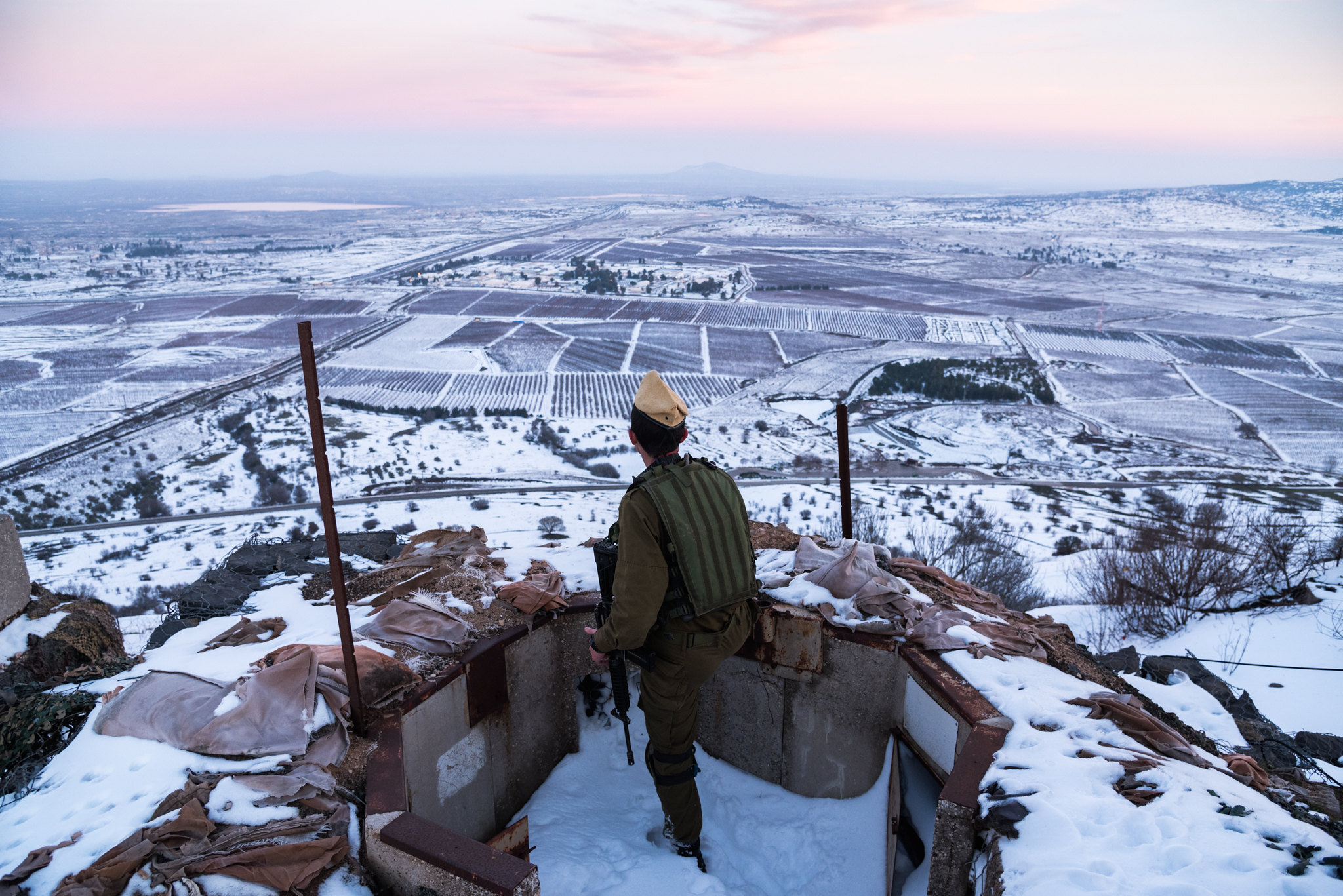As the former Syrian president settles into the luxury of exile in Moscow, John Wight says his country is left facing the challenge of a new sectarian disaster.

Syrian President Bashar al-Assad in video meeting with Russian President Vladimir Putin in 2020. (Kremlin)
By John Wight
Medium
 When states implode as suddenly as Syria just has, they do so as a result of external pressures combining with internal weaknesses, to thus create a dynamic of critical mass to the point where said implosion takes on the character of an idea whose time has come.
When states implode as suddenly as Syria just has, they do so as a result of external pressures combining with internal weaknesses, to thus create a dynamic of critical mass to the point where said implosion takes on the character of an idea whose time has come.
Bashar al-Assad, in the last analysis, was not a leader to inspire the kind of valour and self-sacrifice of those whose duty it was to defend the state and country over which he’d presided for 27 years. The Syrian Arab Army was a hollowed-out shell by the time it evaporated in the face of the surprise offensive mounted by jihadist insurgents from Idlib in the north east of the country on Wednesday, Nov. 27.
Assad, confronted by reality, chose personal survival over principle. Unlike Saddam Hussein, who died spitting words of defiance into the faces of his executioners, Assad escaped the scene of his demise on a private jet with his loot intact and in tow. In his wake, he left behind a broken-backed country whose people he misled into believing he was worthy of their loyalty and fidelity. Now, as he settles into the luxury of exile in Moscow, Syria is faced with the challenge of a new sectarian paradigm as the basis of its future.
With this in mind there are already emerging reports of Islamist gangs in Homs, the country’s third largest city, seeking out slaughtering members of the city’s Shia community along with former Syrian army soldiers and officers. The wild scenes of celebration over Assad’s departure are already giving way to the grim realities of life under Salafi-jihadism.
Make no mistake about it; this turn of events constitutes a huge win for both Israeli Prime Minister Benjamin Netanyahu and Turkey’s President Recep Erdogan. The former is currently engaged in seizure of another chunk of Syria, while Erdogan is doing the same in the north of the country. Historical parallels with Hitler and Stalin’s seizure of Poland in 1939 come into admonitory view.
The Arab world has never been in a more parlous state. Division everywhere, unity nowhere, in which a clutch of bloated potentates vie with one another for the right to be considered the most egregious traitor to decency, fidelity and honor.
Assad, at least — unlike his fellow Arab rulers across the region — refused to go along to get along when it came to allowing Syria to be used as Washington’s footstool. He tried to at least steer an independent course.
But all the same, the corruption he presided over was that of a man who believed in the concept of ownership over service when it came to leadership. He and his family members treated the Syrian economy as their own personal ATM machine — even at a time when 90 percent of the population existed below the poverty line.
Please Support CN’s
Winter Fund Drive!
Without Russia, without Iran, and without Hezbollah, Assad’s Syria would have disappeared long before now. He was no Fidel Castro or Hugo Chavez — a man of the people who was genuinely loved by his people. Instead, Assad himself feared his people, seeing in them the potential for his own demise.
Yes, true, Syria under his leadership was a state that existed in the crosshairs of U.S. imperialism, Israeli expansionism and latterly an explosion of Salafi-jihadism. And yes, true, Syria under his governance was a critical transit point for weapons transfers into southern Lebanon with Hezbollah’s resistance to Israeli militarism in mind.
[Syria’s economy was also destroyed by a combination of U.S., U.K. and EU sanctions as well as U.S. occupation and theft of Syria’s oil and much of its wheat production. In the end, Assad could no longer pay his army, which melted away before the jihadists’ lightening advance to Damascus.]

Israeli soldier stationed at Israel’s border with Syria in February 2017. (Israel Defense Forces, Flickr, CC BY-NC 2.0)
But it is equally true that Assad made catastrophic errors. His decision to increasingly decouple Syria from Iran — perhaps due to growing disquiet over supposed Persian influence within and among his own street — left him brutally exposed at the most critical juncture imaginable.
[Watch: The Chris Hedges Report — The Middle East After Assad, in which Alistair Crooke tells Chris Hedges that Assad biggest mistake may have been that he rebuffed both Russia and Iran and instead turned to the Gulf and the West.]
Personal relations between him and Russian President Vladimir Putin we know were never as warm as officially presented either. In the end both Tehran and Moscow abandoned him as a losing bet.
Assad’s notorious cousin, Rami Makhlouf — otherwise known as Mr. Five Percent — at one point is said to have controlled a full 60 percent of the Syrian economy. Corruption was his game and unbounded greed attached to his name, much to the chagrin of Putin in the context of Russian economic and military aid to the country over time.
The Russians now have a major challenge to navigate when it comes to Assad’s implosion. They have an air base and naval port to protect, both of which are strategic assets, but don’t have the military strength to do so given the needs of Ukraine. Here the much vaunted school of Soviet diplomacy, exemplified by Sergei Lavrov — Putin’s foreign minister — will be key going forward.
[The jihadists have reportedly given the Russia military safe passage out of Syria.]
Abu Mohammad al-Jolani, leader of the insurgency in Syria, currently finds himself being courted by all and sundry on the geopolitical stage. This “former” head-chopping jihadist — if we are to believe the marketing — has some very critical choices to make. Does he continue the Assad tradition of close ties with Russia, or does he move into Washington’s orbit? And what of Israel and Iran? What will be his posture in both of those cases?
The real issue when it comes to this blighted region of the world has never been Sunni or Shia; has never been Muslim or non. No, the real issue determining the direction of travel of the Middle East has always and continues to be sectarian or non-sectarian.
As of now, and as 2024 draws to a close, the forces of sectarianism are in the driving seat. Said forces are but putty in the hands of Washington and its allies. Division and discord is how empires have always sustained themselves in their power. Unity and solidity is their enemy.
The Arab world is in desperate need of the second coming of Gamal Abdel Nasser. It is in desperate need of hope.
John Wight, author of Gaza Weeps, 2021, writes on politics, culture, sport and whatever else. Please consider making a donation in order to help fund his efforts. You can do so here. You can also grab a copy of his book, This Boxing Game: A Journey in Beautiful Brutality, from all major booksellers, and his novel Gaza: This Bleeding Land from same. Please consider taking out a subscription at his Medium site.
This article is from the author’s Medium site
The views expressed are solely those of the author and may or may not reflect those of Consortium News.
Please Support CN’s
Winter Fund Drive!![]()
Make a tax-deductible donation securely by credit card or check by clicking the red button:


Assad, at least — unlike his fellow Arab rulers across the region — refused to go along to get along when it came to allowing Syria to be used as Washington’s footstool. He tried to at least steer an independent course.
And that was his real downfall. Tyrants are fine by the US as long as they are their pet tyrants ..like Al Sisi and Bin Salman. Obvious but NEVER spet out by our Western Minority World propaganda outlets.
I am confused. “Erdogan is doing the same (as Netanyahu) in the north of the country. Historical parallels with Hitler and Stalin’s seizure of Poland in 1939 come into admonitory view.”
When I look at a map, North of Syria is Turkiye and Erdogan has not invaded, nor tried to invade, Syria. Syria has been attacked by Israel, no doubt with the full support of the USA. Let’s not blame USRaeli crimes on Erdogan and Turkiye. IF there are any “Historial parallels with Hitler and Stalin, they are with Israel and USA.
An excellent article. The people of Syria have suffered for a long time and need stability and a chance for recovery.
Syria’s natural condition is not as a modern state … it has never been one historically and is not naturally one. It is a set of ancient and diverse city-states (Damascus, Aleppo, Homs, etc.) which each managed its own affairs, usually under the patronage of a far-off empire (Roman, Persian, Khalifate, Ottoman, etc.). Some kind of decentralized republic would be ideal but likely impossible under current conditions without UN help …
“sectarianism… discord is how empires have always sustained themselves… The Arab world is in… need of… Nasser”
An ideology of economic justice and coexistence of cultures works, such as Nasser’s pan-Arabist socialism, but is as intolerable to the US in the Mideast as at home. The West as much as the Mideast is in need of education against all forms of tribalism and tyranny, but both are too corrupt. So reform of the economically corrupted USG and MSM must come first unless the West is economically defeated or isolated first. Until then, humanity is wasting its time en masse.
Reform starts with education on policy issues (see CongressOfDebate dotcom in formation) and recognition of USG/MSM economic corruption. Then understanding of better institutional design: isolation from economic power, checks & balances in every branch, etc. Then rejection of commercial influence, assumption of public reform duty, etc.
Something that would help is to quit using the terms “tribal, tribalism,” a current intellectual fad among western Euro and colonist descendants in the Americas. Actually look at the assumptions and implications.
“Tribal” historically has been applied to sub-Saharan Africans, Natives of the Americas, and indigenous Australians. You know; the uncivilized. In contrast, Europeans and their descendants elsewhere are “ethnicities.” Arab peoples and Muslims in general are non-Euro and former (or de facto current) subjects of empires. Obviously then inferior. Never mind about some supposed glorious past for any of these Others–it’s irrelevant. Dominance is the only important criterion right now. For the educated liberal Euros repulsed by neocon bellicosity, it’s a more a genteel assumption that they know best; they want only to enlighten the dark people.
If the 2nd paragraph seems arrogant and offensive, then own up to behavior continuing those mind sets. We lessers can see clearly how Euros/descendant elites who think they’re in no way like the uninformed and prejudiced masses actually resemble them all too often.
But “tribalism” is indeed the correct affiliation for a group of people who identify more as members of a tribal affiliation (say, Sunni Muslim Arabs in the Levant) than the European nation state conceptual framework.
For example, if a Alawite person from Latakia thinks of himself primarily as “Alawite” rather than “Syrian” then his tribal affiliation is what he identifies as.
Finally, while some may consider nation states superior to tribal organizations in terms of modernism etc. this is merely a personal or cultural view. I personally feel local affiliations like tribal ones or city-state ones are far more real, lasting, and democratic than artificial nation-states set up all over Asia and Africa post-colonialism.